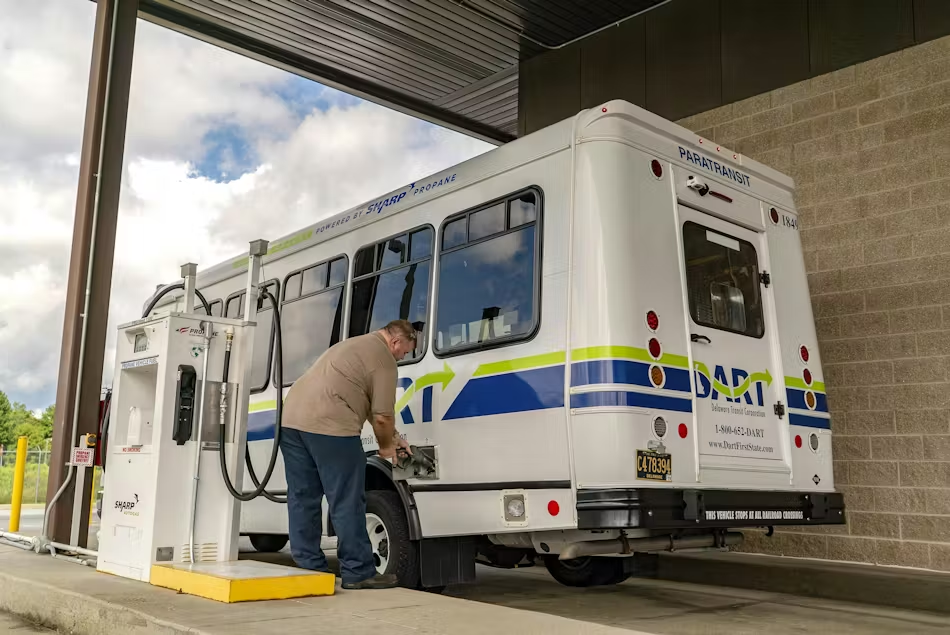Are electric vehicles (EVs) the only solution for reducing transportation emissions? As the conversation around sustainable transportation grows, EVs often are the first to come to mind. Yet, their momentum has recently slowed due to challenges like limited charging infrastructure, battery supply concerns, and high costs. These challenges are prompting fleets to explore other cleaner fuel alternatives, and one promising solution is propane autogas, a reliable, cost-effective, and environmentally friendly option offered by Alliance AutoGas.

Transitioning to autogas doesn’t mean investing in a new fleet. Through a bi-fuel conversion system, Alliance AutoGas enables your existing gasoline vehicles to operate on both gasoline and propane. If autogas is not available during a trip, the vehicle can switch to gasoline, providing consistent performance without interruption. To ensure a safe and effective transition to autogas, proper installation is essential. Alliance provides an Environmental Protection Agency (EPA)-certified system to convert your vehicle to run on autogas. Additionally, a nationwide network of certified installation and service centers guarantee expert support every step of the way.
Autogas offers a practical alternative in today’s evolving energy landscape. Approximately 99% of the nation’s autogas is produced in North America, enhancing energy security by lowering reliance on foreign oil and boosting the U.S. economy. Unlike EVs, which are dependent on the electrical grid for charging, autogas provides a reliable and domestically sourced fueling option. Additionally, federal EV incentives have been rolled back in 2025, with funding cuts and the end of key tax credits, further highlighting the need for practical alternatives like autogas.
It’s important to consider total emissions, not just tailpipe emissions, when evaluating fuel options. Total emissions include the energy and resources used to produce energy, which often still rely on fossil fuels. Autogas separates itself by delivering real-world emissions reductions today and substantially lowering harmful pollutants such as carbon monoxide and nitrogen oxide. It also brings several safety and environmental benefits: it’s non-toxic, doesn’t pollute groundwater, and has a lower flammability range than conventional gasoline, making it one of the safest alternative fuels available. Additionally, vehicles running on autogas use fuel tanks made of durable high-strength steel that are 20 times more puncture-resistant compared to gasoline tanks.
Fuel pricing remains a top priority for fleet managers. Propane autogas on average is often priced around 30% below gasoline, offering consistent savings over time. Unlike gasoline and diesel, which are subject to global oil market spikes, autogas prices tend to be steadier, which is largely due to U.S. domestic production. This price stability helps fleets better forecast fuel expenses and maintain stable budget control.
As the push for cleaner transportation continues, fleets need solutions that are both functional and affordable. Propane autogas is a clean, reliable, and cost-effective solution. With lower emissions, steady pricing, and the ability to use existing vehicles, autogas makes it easier for fleets to make a positive change without big disruptions. Alliance AutoGas is here to help you make the switch and start moving toward a cleaner, more efficient future.


